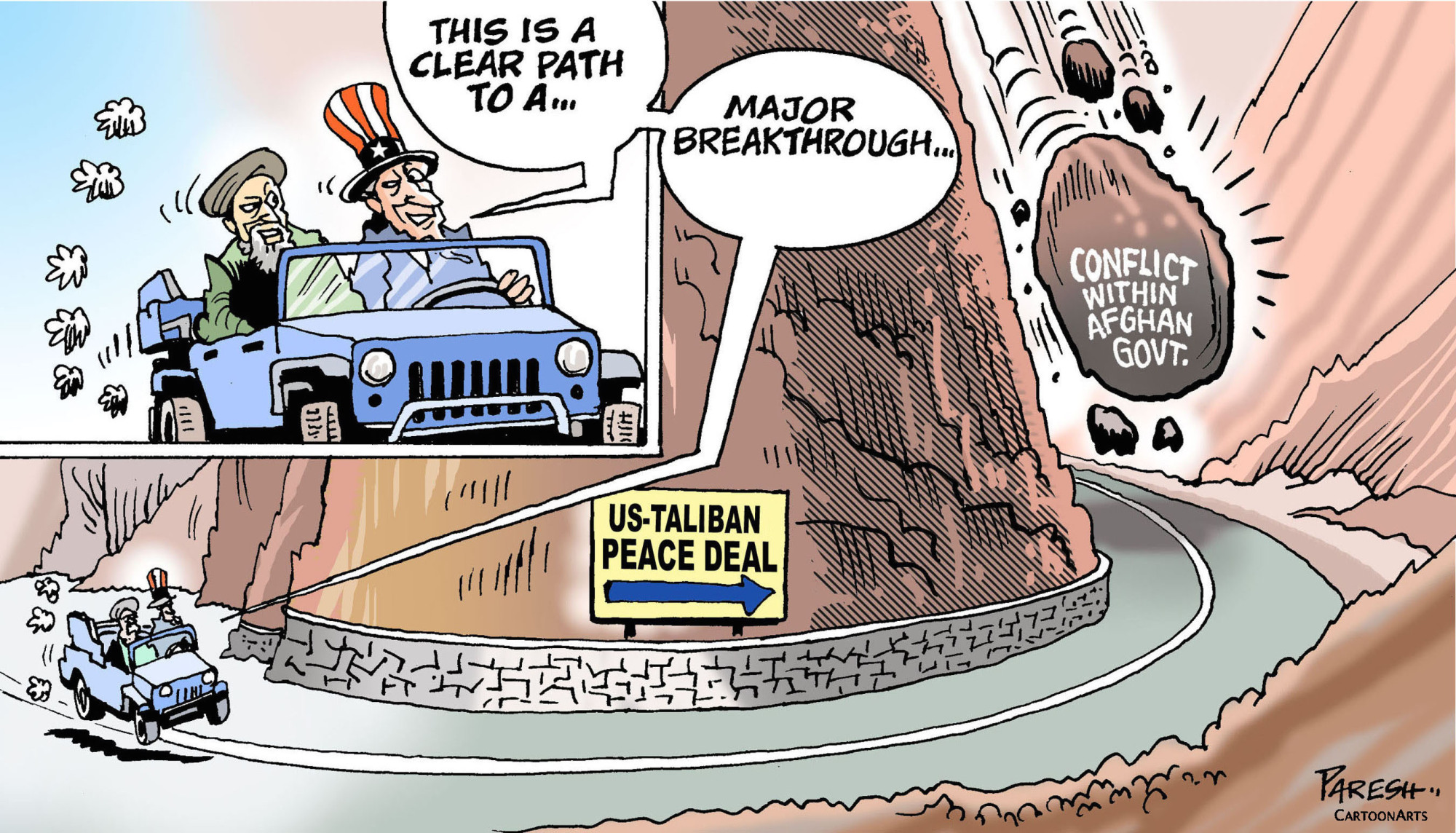Last weekend, the United States and the Taliban signed a peace agreement that could end the U.S. military presence in Afghanistan after 18 years of war. Hopes are high that peace will follow, but caution, if not outright skepticism, is in order. The U.S., its allies and partners, including the Afghan people, are fatigued by the conflict, but using this agreement to abandon Afghanistan — regardless of the situation on the ground — would be a terrible mistake.
The U.S. and the Taliban have engaged in peace talks for over a decade. They almost reached a deal last September, but the Taliban's killing of a U.S. soldier pushed U.S. President Donald Trump to end discussions. Chief U.S. negotiator Zalmay Khalilzad redoubled his efforts, and reciprocal prisoner releases helped build the confidence needed to get talks back on track.
A deal was reached a few weeks ago, but it was conditioned on a weeklong "reduction in violence" by the U.S., the Taliban and the Afghan government, during which all three pledged to halt all offensive operations. Against expectations, the ceasefire held and Khalilzad and Mullah Abdul Ghani Baradar, political leader of the Taliban, signed the agreement last Saturday.


















With your current subscription plan you can comment on stories. However, before writing your first comment, please create a display name in the Profile section of your subscriber account page.